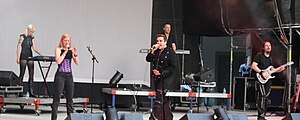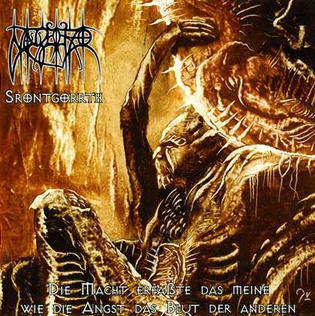
Srontgorrth: Die Macht erfaßte das meine wie die Angst das Blut der anderen is the second studio album by German black metal band Nagelfar, released in 1999.
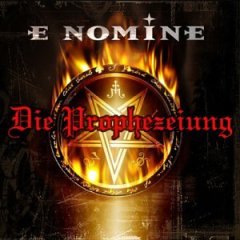
Die Prophezeiung (The Prophecy) is the third album from the German music group E Nomine.

Ireen Sheer is a German-English singer. She had her first major hit in 1970 with Hey Pleasure Man. She had a top five hit on the German singles chart with "Goodbye Mama" in 1973. She went on to finish fourth at the Eurovision Song Contest 1974 representing Luxembourg, sixth at the Eurovision Song Contest 1978 representing Germany, and thirteenth at the Eurovision Song Contest 1985 representing Luxembourg again.
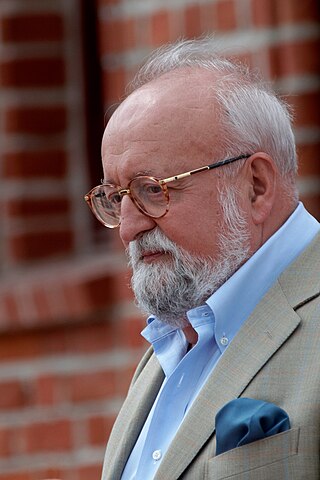
The Symphony No. 8 "Lieder der Vergänglichkeit" by Krzysztof Penderecki is a choral symphony in twelve relatively short movements set to 19th and early 20th-century German poems. The work was completed and premiered in 2005. The symphony has an approximate duration of 35 minutes. Penderecki revised the symphony in 2007 by adding a few more poem settings and the piece has expanded to around 50 minutes. Although given the designation Symphony No. 8, it was not actually the final symphony Penderecki completed before his death in March 2020; the Sixth Symphony, begun in 2008, was not completed until 2017.
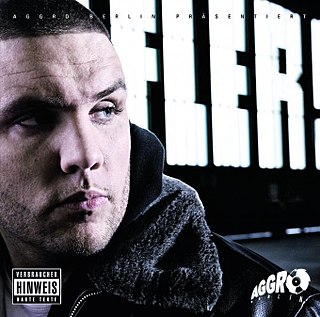
German rapper Fler has released 17 studio albums, four mixtapes, one EP, six collaborative albums and 59 singles.
Oskar Höcker was a German author of historical novels for children and a stage actor.
Franz Schubert's best-known music for the theatre is his incidental music for Rosamunde. Less successful were his many opera and Singspiel projects. On the other hand, some of his most popular Lieder, like "Gretchen am Spinnrade," were based on texts written for the theatre.

"Nun freut euch, lieben Christen g'mein", or “Dear Christians, One and All, Rejoice” in English, is a Lutheran hymn, written in 1523 by Martin Luther. It is one of Luther's early hymns and considered by some as one of his finest. It was published as one of eight songs in 1524 in the first Lutheran hymnal, the Achtliederbuch. The Achtliederbuch contained four songs by Luther, three by Speratus, and one by Justus Jonas. It appeared also in 1524 in the Erfurt Enchiridion.

Rudi Schuricke was a popular German singer and actor. In the 1930s he was Second Tenor with the Kardosch Singers, a popular vocal ensemble of the time. When the group dissolved in 1935, Schuricke joined the Spree Revellers and later proceeded to found his own vocal group, the Schuricke Terzett. He also appeared as a solo singer with many popular orchestras of the 1930s and 40s. His 1949 recording of "Capri-Fischer" was a "smash hit" in Germany. Even as late as the mid-1950s, he was still a successful musical artist. In 1954 alone, his song "Moulin Rouge" was the 74th most purchased single on the German year-end chart and another of his songs "Das Märchen unserer Liebe" appeared on the German Top50 chart. The advent of the rock 'n' roll age, however, soon made his music out-dated.
"Herzlich tut mich verlangen" is a German hymn, with lyrics written in 1599 by Christoph Knoll, with a melody adapted from a secular song by Hans Leo Hassler. It is a prayer for a blessed death, beginning "Herzlich tut mich verlangen nach einem sel'gen End". Its hymn tune, Zahn No. 5385a, was later also used for Paul Gerhardt's "Befiehl du deine Wege" and "O Haupt voll Blut und Wunden".
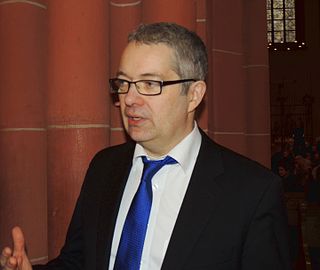
Peter Reulein is a German composer, organ improviser, academic teacher and church musician, from 2000 at the church Liebfrauen in Frankfurt am Main. In 2016 he composed for the Catholic Diocese of Limburg the Franciscan oratorio Laudato si'.
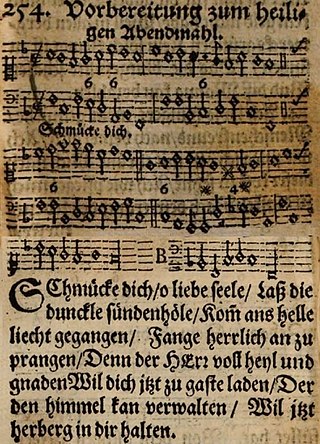
"Schmücke dich, o liebe Seele" is a Lutheran hymn in German, with lyrics by Johann Franck and a hymn tune by Johann Crüger. It was first published in Crüger's 1649 Geistliche Kirchen-Melodien, and was later adopted in other hymnals, such as the 1653 edition of his Praxis pietatis melica.
"Nun liebe Seel, nun ist es Zeit", alternatively written "Nun, liebe Seel, nun ist es Zeit", is a Lutheran hymn for Epiphany, in five stanzas of six lines each, by Georg Weissel. It was first printed in 1642, set as a motet by Johannes Eccard. A version with an additional stanza is attributed to Johann Christoph Arnschwanger.
Friedrich Dörr was a German Catholic priest and professor of theology, who is known as a hymnwriter. He shaped the first common German Catholic hymnal, Gotteslob, published in 1975.

Fritz Jöde was a German music educator and one of the leading figures in the Jugendmusikbewegung.
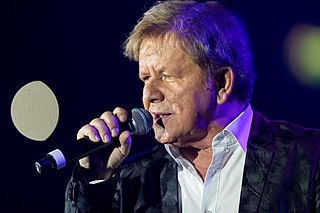
Gerd Günther Grabowski, better known by his stage name G. G. Anderson, is a German Schlager singer, composer, and music producer.
"O komm, du Geist der Wahrheit" is a Lutheran hymn for Pentecost in German. The text was written by Philipp Spitta, probably in 1827, and published in 1833 in the song collection Psalter und Harfe. It is a prayer to the Holy Spirit for courage to confession in a time poor in faith. The hymn which first appeared without a melody, is now usually sung to the 1529 melody of "Lob Gott getrost mit Singen". It is part of the current Protestant hymnal, and of other hymnals.
Peter Seewald is a German journalist and author with a focus on religious topics, especially on Pope Benedict XVI.
